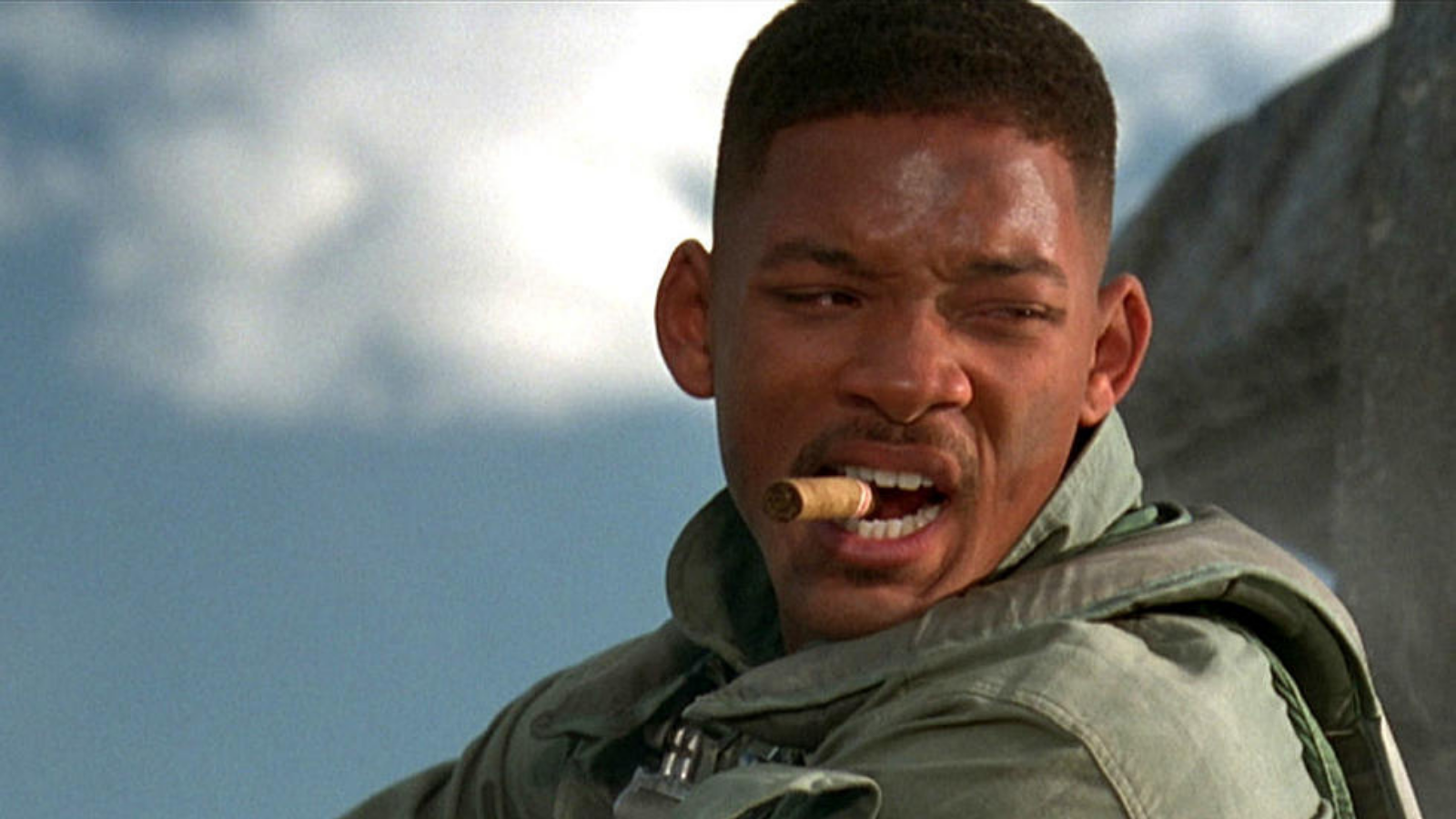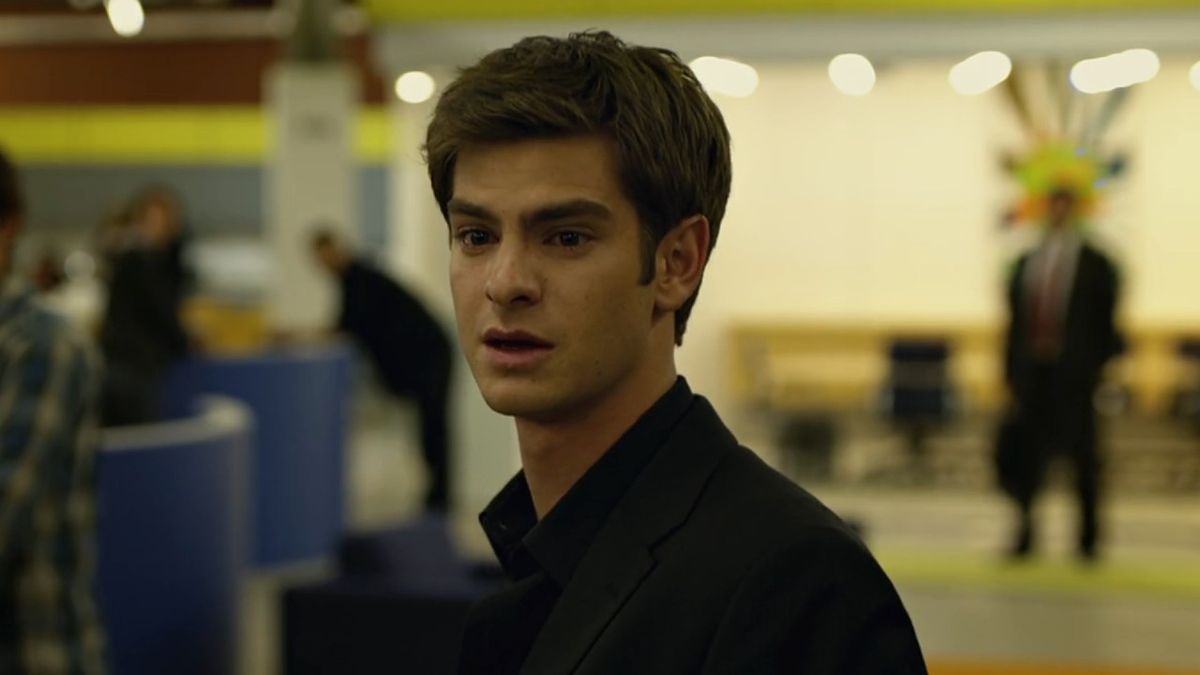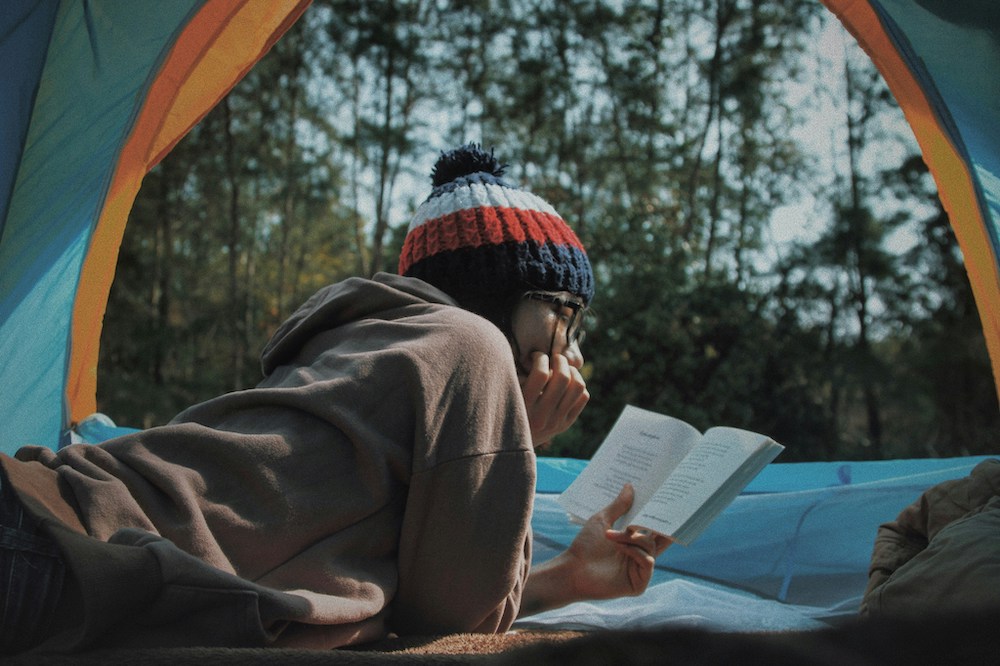I watched Bad Boys: Ride or Die on a long summer Sunday night in Malmö, Sweden, halfway between Midsommar and the Fourth of July. I was on vacation, visiting family and friends, but took advantage of a free night to see what summer blockbuster season felt like in another country. The theater was packed for the 9:00 PM showing. Packed and rowdy, truth be told, in a way that cut against every stereotype of self-conscious Nordic reserve.
The family next to me were all blond. The teenage son wore Yeezy sneakers and shared a big bag of pick-a-mix gummy candies with his siblings. Black salt licorice and those chewy cola bottle things. Swedish classics. There were a few times when Will Smith yelled something to the effect of “oh hell naw!” The blond family couldn’t get enough, every time. Neither could I. It didn’t matter that we all knew that Will Smith would shout “oh hell naw!” at us, that we had purchased tickets with the specific anticipation of being “oh hell naw”-ed. It’s the kind of joke-adjacent outburst whose function is less to make audiences laugh than to welcome them into a knowing fraternity. We get it, Will. This Swedish teenager with a taste for gummy candies and controversial sneakers and me, a middle-aged White man from Montana. We both get it.
Will Smith knows that we want to hear him yell “oh hell naw.” He’s known it ever since he was an elementary schooler navigating the cultural distance between the Black neighborhood in West Philadelphia where he grew up and the majority White Catholic school where he spent his elementary years. He was a charismatic star in both spaces, capable of eliciting gales of laughter from kids and grown-ups alike, but not with the same material. As Smith relates in his 2021 autobiography Will, the jokes his buddies on the block loved were grounded in reality, with a sharp, satirical edge. The students and staff at Our Lady of Lourdes didn’t want reality, though. They wanted a show. Funny voices. Big movements. Smith doesn’t talk about shucking and jiving, but the insinuation is there.
In 1993, bell hooks published Eating the Other: Desire and Resistance, a cautiously hopeful commentary on White commodification of Black Otherness. Its core assertion is that, while White fascination with Blackness has typically “occur[ed] in a matter that reinscribes and maintains the status quo,” the generation then coming of age in the nineties had an opportunity to break the long cycle of distanced White gawkery. Per hooks, young White America’s continued fascination with Blackness reveals a degree of longing, for both connection and liberatory pleasure. She argues that those impulses could, if harnessed appropriately, offer tools for solidarity and resistance to White supremacy and consumer culture. hooks doesn’t over-promise liberation for all, but she dares wonder out loud if my generation might finally chart a new course.
Will Smith knows that we want to hear him yell ‘oh hell naw.’
I was twelve when hooks wrote Eating the Other, which meant I was fully unaware that a venerable Black scholar looked at my nascent generation of White pop culture consumers with any degree of optimism. I had, at that point in my life, done very little to earn her esteem. Like so many other White children of liberal parents, I abhorred racism because my parents taught me to do so, but in the progressive, church-y White Montana communities in which I was raised, that mostly amounted to expressions of solidarity and sloganeering. My family attended anti-apartheid dinners and talked in hushed voices about our guilt for how the West was won. What more could we do? We were out in cowboy country. If the Civil Rights movement was alive anywhere, it wasn’t here.
What I knew damn well, though, was that Will Smith was cool. He was cool and silly on The Fresh Prince of Bel-Air, where he wore loud shirts and performed exaggerated dance moves. He was cool in a distinctly different way, less goofy and more grown-up (which is to say, more frequently shirtless), on the big screen. I grew up in the golden era of Will Smith, ascendent. Like clockwork, every summer meant a new Smith-led blockbuster, which in turn meant that every teenager in Missoula made an annual pilgrimage to cheer on our Hollywood hero/Black best friend at our aging box of a movie theater out by the K-Mart.
We cheered Will Smith when he chased South Floridian drug dealers while his uptight White boss admonished him to play by the rules. We cheered at Independence Day when he punched an actual alien right in its face tentacles (“Welcome to Earth!” he shouted! Is there any cooler phrase to yell at an alien?). And we cheered somehow even more loudly when, in a whole different alien movie, he put on sunglasses and a sharp suit and reminded an identically dressed Tommy Lee Jones that the difference between them was that “he [Smith] makes this look good.” We’d cheer and then walk outside into the Montana dusk, huddling next to the payphone in our board shorts and oversized tees, waiting for our parents to pick us up. We weren’t stupid. We knew Will Smith wasn’t really our best friend. But we weren’t seeking a relationship. All we needed was ninety minutes of competently delivered wish fulfillment. The hands down coolest guy in the movie? The Black guy with the well-toned but still non-threatening abs and the PG-13 one-liners? He smiled at us.
We had no idea how hard Will Smith was working for our adulation. We didn’t know that, during his star-making career as a rapper, he made a distinct choice to abstain from curse words and to solely rap about safe-for-youth-group topics like girls (they’re nothing but trouble), parents (they don’t understand) and summertime (the absolute best, especially for unwinding). We didn’t know the fastidiousness with which he chose parts that would make him, a Black man, the biggest movie star in the world. He had to be tough but never scary. He almost always played cops and soldiers, but never in a stodgy uniform. He’d crack wise and drive his cars fast, but always stand up for the rule of law. He’d talk like how we imagined Black people talked (the birth of the distinctly Smithian “oh HELL naw”), but crucially he’d say it directly to us, the fraternity of the suddenly knowing, a megawatt movie star grin on his face.
There were always White people in Will Smith movies. Often, they’d be on his team– co-stars, allies, old friends. They were never cool, though. They were either too loud and corny, like his fighter pilot buddy in Independence Day, or too old and stodgy, like Jones, his Men in Black foil. White people would occasionally help Will Smith save the day, but usually only by doing something boring on a computer. The White sidekicks were never our favorite characters, but we needed them. Will Smith made the suit look good. Tommy Lee Jones didn’t. Which means that we, too, wouldn’t have made the suit look good, but that distinction didn’t matter. We didn’t have to like the sidekick. He could be a safe vessel for our own projected insecurities, because in the end what was most important was that he (and therefore we) still got to hang with the Black guy.
A decade after hooks’ hopeful treatise on how my generation of White progressive youth might break the cycle of non-liberatory consumption of Blackness, another essay, Bill Yousman’s essay, “Blackophilia and Blackphobia,” offered a sober but predictable analysis of how well we succeeded in practice. No, the revolution was never televised. Of course it wasn’t. In the decades during which I came of age, White Americans consumed increasing amounts of Black culture – on TV, in movies and especially in music, as hip hop became the dominant soundtrack to American teenage life. We were buying what was being sold to us, but we weren’t subverting anything in the process.
We were buying what was being sold to us, but we weren’t subverting anything in the process.
Contrasting millennial consumption of Black art to the crowds that cheered for the racist minstrel shows of the Jim Crow era, Yousman argued that my teenage peers and I were still engaged in a performance, this one designed “to contain [our] fears and animosities toward Blacks through rituals not of ridicule, as in previous eras, but of adoration.” The same story, essentially, just updated for a new ear. Per Yousman, our consumption of a particular version of Blackness was still “a manifestation of White supremacy, albeit a White supremacy that is in crisis and disarray, rife with confusion and contradiction.”
The version of myself that cheered on Will Smith between mouthfuls of popcorn and fountain pop would have vehemently denied participating in a “manifestation of White supremacy,” but catch me at the right moment and I would have admitted confusion and contradiction. One of the many truisms in twenty-first century anti-racist discourse is that White people “love Black culture but not Black people.” It’s a statement that has always struck me as being both accurate and incomplete. White people tell ourselves we love Black people, but our general pattern of interaction reveals that our professed love isn’t strong enough for us to actually challenge America’s racial hierarchies. I’d offer, though, that refrain is incomplete without an addendum, one most famously repeated by Toni Morrison in a series of late-career interviews. Of course White people aren’t capable of loving Black people, Morrison argued, how could we if we hated ourselves so much.
I left Montana in 1999 for a liberal arts college in the Midwest, the kind of school that promised kids like me, children of hippie parents, a safe haven for our pristine political opinions and angst about the state of the world. Like a good liberal arts college snob, I didn’t get out to the multiplex all that frequently in those days. Instead I’d huddle with buddies in a dorm room around a cult VHS movie. Office Space, Mike Judge’s send-up of corporate America, was on heavy rotation. We loved the opening credits scene, where one of the uncool White office drones is stuck in traffic, aggressively rapping along to a hard-edged Geto Boys song before seeing an actual Black person, a genial man selling flowers in the median. The White rap fan immediately turns down his music and locks his door, his face temporarily flush with shame and fear. As soon as the flower vendor passes him by, the White man’s bravado returns. The White commuter and the Black rapper shout in unison again… “I’ve got this killer up inside of me…”
We’d rewind that scene over and over, just losing it at that corny, overcompensating White guy on screen. What a geek, we’d assure ourselves, pleased once again that we got it. The joke only worked, though, if not for layers of shared recognition and truths unspoken. Ours was not a post-racial America. There was something about our position as White people in that non-post-racial America that still filled us with guilt and shame. We knew enough to not admit it out loud, but we still associated Black people, especially Black men, with danger and misanthropy. We didn’t have the language to wrestle with that, let alone any clue about how to subvert it, though, so all we had left were punchlines about aesthetics. Oh man, White people were sooooo lame. We were soooo uncool. We couldn’t dance. We couldn’t rap. We couldn’t punch the alien. But we could admit it, at least. That was the only subversion asked of us. We could nod knowingly at jokes about how we were a bunch of corny ass honkeys, how we didn’t have rhythm, how we couldn’t handle flavor in our food. And then we’d graduate and take our rightful places in socioeconomic pecking orders and the circles would remain unbroken. What were we if we weren’t cool? Smart, confident, worthy of positions of authority.
In the decades after I graduated college, everything and nothing changed, many times over. Will Smith stopped being the coolest movie star on the planet. He traded his big, brash matinee idol roles for quieter, more self-consciously grown-up ones, just as I left aside the simultaneous stridency and frivolity of liberal arts college life for buzzword-filled nonprofit office jobs. Both of us became doting, uncool middle-aged dads. Some years, his movies would attract more attention and win awards, other years they wouldn’t. He rode the waves of fandom.
Meanwhile, my generation of progressive White people went through our own waves. We’d oscillate between fleeting moments of racial awareness and longer stretches of resigned myopia. We patted ourselves on the back for electing the first Black President and dutifully pursed our lips when yet another cop. We learned the rituals of periodic racial reckoning. Just as we once went to the multiplex for a Black friend who could assure us that he loved us, we were now just as eager to show that we could conspicuously consume Black art that told it like it is. By the time the summer of 2020 came around, we had learned to show off that we had read Between the World and Me and watched The 13th and that we still loved Kendrick and Beyonce but now because of their roles as truth tellers rather than party starters.
Ours was not a post-racial America.
In our better moments, some of that conspicuous reading and watching and listening may have brought some of us closer to bell hooks’ dream for us. Perhaps we were actually trying to connect, rather than just seek our own absolution through content. Perhaps we were interested in learning somebody else’s story rather than merely crafting a story about ourselves. Perhaps we dreamed more of collective liberation rather than the quickest path to make our own racialized discomfort disappear.
What I do know is that, in aggregate, we’ve proven ourselves far more skilled at performing racial reckonings than making racial progress, that a year after the summer of 2020 there was a backlash and then a general weariness about all that “woke nonsense.” And then, in 2022, Will Smith – one of Hollywood’s most impeccable cultivators of public image – let his guard down for a minute. He slapped Chris Rock at the Oscars, right on our TV screens. It wasn’t the kind of thing that our Black best friend did. It was the kind of behavior that confirmed stereotypes, which is to say that it was the kind of behavior that White liberals didn’t like watching, lest it reveal we still held those stereotypes. It was a mess.
Sometimes when you’re stuck, you move forward. Far more often, though, you slink backwards, into something more comfortable. Will Smith can never be young again. He will never be the coolest guy in Hollywood. He can never take away the slap. But he knows what his audience – or at least, his White audience – will always need from him. We want that smile. We want those one-liners. We want those fast cars, but only when they’re driven to protect us. We want the promise in the “oh hell nah.”
When I sat down in that Swedish cineplex a month ago, I expected to be more interested in watching the Swedes experience Bad Boys than in the film itself. Who would win in the battle between Scandinavian silence and American spectacle? Either way, I assumed, a sight to behold.
But then Will Smith weaved his sports car through Miami traffic, parked on a dime and stepped out like he’d just tamed a bucking bronco. He tossed off a couple lines that weren’t technically “oh hell naw” but hit the same pleasure centers. And sure, he looked decades removed from his early twenties, and sure I had now published a whole book wrestling with my own Whiteness. I still laughed like a banshee. I still pumped my fist. And I still let myself daydream that I was the sidekick in the back seat, that I had personally arrived in the promised land, that racial reconciliation and reparations required nothing more than the contract in a movie idol’s wink at the camera.
“You get it, right? You love me, your Black friend. Of course you do. That’s why you’re one of the good ones.”







